by Jenny Rose | Jan 10, 2019 | A Flourishing Woman, The Journey
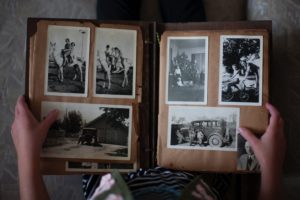
Photo by Laura Fuhrman on Unsplash
I’ve lately been revisiting David Whyte’s work, including one of his audiobooks titled What to Remember When Waking. He suggests having faith in things falling away.
It caught my attention because usually we speak of faith in what we judge to be positive: Courage, kindness and the sun coming out tomorrow. Having faith in the shadow side of life suggests a deeper wisdom.
This coincides with my current personal focus on shame, which I discover (to my chagrin and sorrow) is a burden I carry every day and can’t remember being without. I knew it was there, in the roots of me, but generally speaking I try to hide it and look the other way. I’ve never had any idea how to eliminate it or transform it into something less painful and more effective, so it’s become firmly and almost invisibly established.
Whyte, a magnificent poet, prompted me to think differently about feelings and experiences we typically cast as negatives and try to avoid, ignore, hide or minimize. Have faith in things falling away.
What kind of things fall away?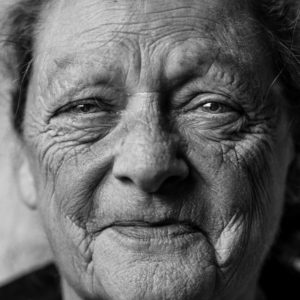
Leaves in autumn, innocence, comets, people, memories, time, feelings, others beloved by us, and our own lives. Flowers drop their petals. Snakes shed their skins. Seconds and years fall away, one by one. The sea ebbs from the land and then returns. What we can see of the moon wanes and falls away to nothing before it waxes once more. A fertile woman watches each month’s possibility of new life fall away when she is not pregnant. The dark falls away before the light, and the light before the dark. Cell by cell, lash by lash, hair by hair, our bodies fall away during our lifetimes.
Sometimes we fall away from others, or tear ourselves away from jobs, relationships or places.
Some things we are glad to let go and leave behind us. Other losses are so terrible we feel permanently maimed.
Then there are things like shame that are forced upon us by others, that cripple our joy and our ability to love ourselves. We long to be free of such burdens, to let them fall away, but we don’t know how to do it. Even if we find a way to loosen their grip upon us, we are sometimes unwilling to cast them completely aside, because then we would become strangers to ourselves, strangers in our own lives, and we fear that change more than our familiar suffering.
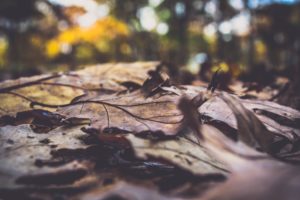
Photo by fancycrave on Unsplash
Faith in things falling away. Trust and confidence, in other words, in both loss (things we don’t want to lose) and relief (things we do want to shed).
Could it be that the way through shame, longing, fear, anguish and the like is to turn toward it, embrace it, kiss it on the mouth? Is that what must happen before it can fall away? I wonder.
Can we trust in the approaching storm as much as we trust in the sun coming out tomorrow? Can we trust in the unraveling, the fraying, the slow decline, the darkest shadows of our hearts and actions, as well as healing, vigorous new life, and our kindness and compassion?
I suppose what I’m really asking is if we can trust in all of our experience and feeling, whether comfortable or agonizing, in any given moment. Can we trust in change and suspend our judgement about whether it’s good or bad? If our world is burning around us and everything we know or have is falling away to ash, can we have faith in the purification of that terrible loss?
Taking it further, am I willing to have faith in my own frustration, anguish, scars and shame? Am I willing to explore these things, talk with them, allow them to teach me, even love them, and then let them go or transform? Do I possess the courage to let an outdated version of myself fall away while I enlarge my soul?
Inevitably, inexorably, things change and fall away. As human beings, how do we choose to live with that fact? Faith or resistance?
Tonight I will sleep with my worries through dreams dark with soil
and the heaving cataclysm of the spade
turning earth round me
not speaking of air
or light fused with greenness
but of darkness
and the first leaves
like hands in prayer
clasped inside the seed.
— David Whyte, “Inside”

Photo by Trevor Cole on Unsplash
All content on this site ©2019
Jennifer Rose
except where otherwise noted
by Jenny Rose | Nov 15, 2018 | Connection & Community, Emotional Intelligence
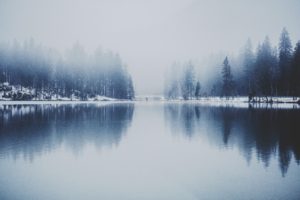 We woke to a snowstorm this morning in central Maine. I could hardly wait to get out in it and walk. It was snowing hard and accumulating fast, coming down in heavy, wet flakes. I headed to work midmorning, maneuvering out of the driveway with some difficulty. The ground was already well saturated before this storm.
We woke to a snowstorm this morning in central Maine. I could hardly wait to get out in it and walk. It was snowing hard and accumulating fast, coming down in heavy, wet flakes. I headed to work midmorning, maneuvering out of the driveway with some difficulty. The ground was already well saturated before this storm.
Getting out of the driveway is the hardest part of winter driving here. I’ve been amazed at how well the roads are taken care of in Maine, much better than the rural roads and streets in Colorado. Still, winter driving is winter driving, and I gave myself plenty of time.
I quickly discovered the paved road was every bit as treacherous and without traction as the driveway. There was a heavy coating of slush and no sign of sanding or plowing. If I went over 30 miles an hour I lost traction and I almost couldn’t climb the steepest hill on the way into town. I turned on my audiobook, sipped my travel mug of tea, and settled down for a slow and careful commute, wondering why the road crews seemed to be ignoring the dangerous conditions.
 I started down a gently sloping hill with a shallow curve. One minute I was driving and the next I was floating. I was alone on the road. Nothing happened. I hadn’t accelerated or braked or jerked the wheel. I just started slipping across a thin layer of slush between the tires and the pavement, and I knew I wasn’t going to make the curve. I kept my feet off the pedals and tried to steer into the skid, but the tires might as well have been glass slippers, for all the traction they had.
I started down a gently sloping hill with a shallow curve. One minute I was driving and the next I was floating. I was alone on the road. Nothing happened. I hadn’t accelerated or braked or jerked the wheel. I just started slipping across a thin layer of slush between the tires and the pavement, and I knew I wasn’t going to make the curve. I kept my feet off the pedals and tried to steer into the skid, but the tires might as well have been glass slippers, for all the traction they had.
I was very lucky. The side of the road was thickly edged with woody shrubs like alder and willow. I didn’t hit a pole, tree or fence, and I wasn’t going fast. I also didn’t land in water, a real danger here in Maine. I recognized the weightless feeling in the pit of my stomach and knew I was helpless, a victim of momentum. All I could do was sit tight and wait for the car to stop. I wasn’t at all scared. I had a seatbelt on and I was only coasting.
I’m going to be late for work, I thought, resigned.
The brush and bushes caught me neatly. I turned off the audiobook and engine, turned on the hazard lights, gathered up my keys, wallet and travel mug of tea — not a drop had spilled — and set out for the nearest house.
I was greeted by the baying of several dogs, the alarm calls of a pair of geese and a woman about my own age with very blue eyes. I explained, said I didn’t have a cell phone, and asked if I could call for help.
She was extremely kind. The dogs were contained somewhere while I waited. The geese eyed me balefully. When I stepped inside, the house was warm and a stove glowing. It was a typical farmhouse kitchen, cluttered, friendly, comfortable, filled with plants. She handed me her cell phone, introduced herself as Sarah, and asked if I was hurt. I reassured her I was perfectly unharmed, called my partner and called work. I was about to call AAA when she offered to pull me out with her tractor.
I dithered. I have a horror of being a burden or needing help. Why should this woman leave her cozy kitchen and go out into the snow and slush to pull a stranger out of the ditch? She told me to stop apologizing and pointed out that AAA would likely take a long time to respond, given the local conditions. We both wore heavy mud/snow/rain boots. She flung on an old yellow slicker and fired up the tractor.
The tractor couldn’t get any traction, either. It churned up mounds of mud and grass, but the chain wasn’t long enough to allow it to pull from the pavement, and she came close to sliding sideways into the ditch, just as I had done.
At this point we’d both been lying on the slushy, muddy ground hooking up chains, the snow was coming down in wet clots, and the narrow rural road we were on was extremely hazardous. Sarah took the tractor back and returned with “Tank.” Tank is an old-fashioned heavy farm truck, painted in camo and looking indestructible.
Tank couldn’t pull me out, either.
 During all this, everyone who went by stopped to ask if we needed help.
During all this, everyone who went by stopped to ask if we needed help.
The snow turned to heavy rain.
We went back to the house and I called AAA.
I wanted to wait for the tow truck in the car, but Sarah wouldn’t hear of it. We could see the car from her kitchen window. We were both wet and muddy to the skin. We sat at the kitchen table and talked about our sons (her two and my two) and what we’d done with our lives so far. Every car that went by mine either slowed or stopped. We were so worried someone else would go off the road or my mishap would cause another accident, we put a note on the car window saying Nobody hurt. Waiting for tow truck.
About an hour later a big tow truck pulled up. I thanked Sarah from the bottom of my heart, put my sodden coat back on and went out into the pouring rain. There were two young guys in the truck. They considered the problem, walking around the car in their heavy boots and the bulky waterproof gear all the working men seem to wear here. They decided the only way to get me out was to pull me sideways back onto the road. I was shivering by that time. I got in the driver’s seat, rolled down the window (I could hardly have been wetter), and prepared to follow directions.
While they were working the road was effectively blocked. A big pickup truck came along, pulled into the center of the road behind the tow truck, and turned on his hazards.
They pulled this way and that. I went from neutral to park and back again. I braked when they told me to. The rain ran down my face and neck and under my coat and other clothing. Branches scraped across the car. The winch whined. Mud and slush churned. A few vehicles waited patiently. We finally got two tires on the road. They got behind me and told me to accelerate nice and slow. I did so, they pushed, and the tires found the pavement again.
I thanked them wholeheartedly. I waved to the kind and patient human being who blocked traffic and kept us all safe.
This morning in Maine there have been many, many accidents, including a flipped-over school bus, snowplows off the road, jackknifed trucks and people like me sliding into ditches, power poles and other cars. There have been cancellations, delays and detours. We are warned of flooding. This afternoon and tonight we expect freezing rain. The storm is not over, but my adventures for the day are. I crept back home three hours after I left it, shivering, wet and exhausted, and promptly got stuck in the driveway.
How do we thank the strangers who brush against our lives and lend a helping hand? I’ve never known. A simple thank you seems so wholly inadequate. Still, what else can I say? What about all those anonymous strangers who help in ways we never know about, or come and go so quickly we don’t even see their faces? As an old first responder, I know how essential traffic control is, but I don’t know if the driver who shielded us and stopped traffic was a man or woman. I suspect everyone’s plans were disrupted this morning, but people slowed and stopped to make sure the driver of the car in the ditch was not injured or needing help. Treacherous roads, blinding snow and then rain, a dark November day, and ordinary men and women willing to assist in spite of it, willing to leave their warm firesides and kitchens, willing to climb out of their dry, cozy vehicles, willing to do what they could for a stranger.
These are the darkest times I’ve seen in America in my lifetime, but this morning my faith in humanity was renewed. A series of strangers helped me when I was in need, and because of them I’m back home, safe, dry and warm. I’m grateful. I also know that all over the world people are practicing small acts of kindness all the time, ordinary people going about their business in neighborhoods, communities and at work. This post is for them.
Thank you for checking to make sure a stranded driver is okay. Thank you for answering a stranger’s knock at your door. Thank you for offering a cell phone or other means of communication to someone who is stuck without the ability to call for help. Thank you for helping direct or block traffic so further accidents don’t occur. Thank you for being patient when an accident holds you up. Thank you to all those first responders, tow truck drivers, utility company workers and the other hundreds of thousands who are there with tow chains, chainsaws, shovels and tractors when the unexpected happens. You might be doing your job, but thank you anyway for your smiles, your kindness, your expertise, your willingness to contribute, your difficult and often risky work, and your humanity.
My hope lies in all of us who do what we can in our little corner of the world. The simple, humble kindness of strangers may, in the end, save us.
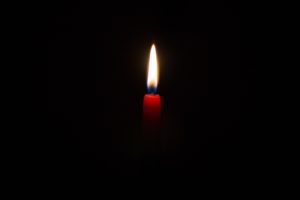
Photo by David Monje on Unsplash
All content on this site ©2018
Jennifer Rose
except where otherwise noted
by Jenny Rose | Jul 5, 2018 | Power
“Always forgive your enemies; nothing annoys them so much.”
― Oscar Wilde
It’s been a chaotic week for me of fear, memories, fire, grief, a couple of new friends and unfinished emotional business resulting in a foul snarl of neglected feelings. Also, in common with millions of others, we are sweltering under a heavy blanket of heat and humidity and I feel about as attractive as a slime mold.
My old home place, my old community in Colorado, is burning. I’m not there. I’m glad I’m not there.
I should be there. I hate myself for not being there.
I’ve written before about blessing the ground between us. Now my mind is filled with the ground I once lived on, and all I can see are the horrifying images of flames, smoke, and the ashy remains of structures and scorched land. I spend hours every day searching the web for updates from local command and incident centers, the local papers, TV and radio and residents who post pictures and videos. I watch interviews with old friends and weep. I see video clips of my town and it’s like a ghost town, the streets empty and everything looking sere and dry because of drought. Towers of smoke loom and the air is an eerie sullen color. This should be the height of the tourist season there, the streets busy, flowers growing, and shade trees green and cool.
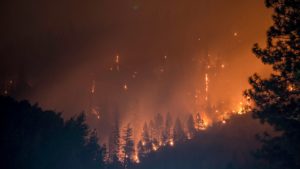
Photo by Matt Howard on Unsplash
Now there are tens of thousands of scorched acres between me and my memories of that place. I bless the ground between us. Given time and water, it will renew, but I think water is no longer a certainty and my lifetime will have run its course before the land recovers and the forests regrow. In a strange sort of way, the desolation of all that scorched earth echoes the desolation I feel as I watch nations, communities, and people become more divisive and competitive. It seems we’re getting more and more skilled all the time at scorching the ground between us, soaking it in blood and then sowing it with salt. We do not forgive differences. We carry hatred between peoples from one generation to the next, and many are at work in the world to increase the divisions by fanning the flames with rhetoric and disinformation, and pouring gasoline onto the fire in the form of resentment, ignorance, and fear.
We do not forgive. We are not forgiven.
Never have despair, powerlessness and fear seemed so darkly seductive to me as they do in these times. My experience is only an infinitesimal part of what’s happening now on Planet Earth, and I’m quite sure we have not yet descended as far as we’re going to. At times, it’s only by deliberately stoking my stubbornness and will and refusing to take my gaze away from where my power is that I continue to cling to faith in some kind of a cosmic balance and plan in spite of fear.
I’ve been spending a lot of time recently thinking about my family and dealing with some of the aforementioned unfinished business. I’ve written letters, both to the dead and to the living, some that have been sent and others that never will be. As I make new friends, I listen to what we talk about, watch how we get to know one another and feel the flowing give and take of compassion and support healthy female friendships create.
“I wondered if that was how forgiveness budded; not with the fanfare of epiphany, but with pain gathering its things, packing up, and slipping away unannounced in the middle of the night.”
― Khaled Hosseini, The Kite Runner
Over and over again, in all these places in my life, I stumble upon the theme forgiveness: The power of it; the terrible, helpless pain of feeling unforgiven; the weapon we make of it; the fear we will not be — cannot be — forgiven for whatever our particular stain or shame is. I have lately asked myself and others: Am I unforgivable? Can that be true? Can love be true without forgiveness? How do I continue to demonstrate love and connection in the face of obdurate unforgiveness? When others told me I was unforgivable, did they mean it, or am I still bleeding over something they have, in fact, forgiven?
It struck me this morning, as I lay in bed at 6:00 a.m. with the rattling roar of the window air conditioner in my ears and the damp sheet over my sweaty body, I’ve once again lost my way, been seduced by the false comfort of victimhood. I’ve been lost in the tangled maze of all those messy feelings and forgotten, temporarily, the point is not what anyone else does about forgiveness. The point is, and the power resides in, what I do with it. Furthermore, the biggest question of all is the one I haven’t been asking.
Can I, do I, will I forgive myself?
That’s where my power is.
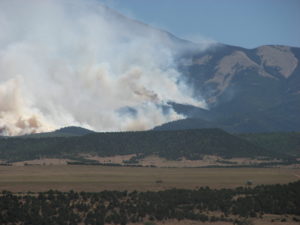
East Peak Fire, Huerfano County, CO 2013
Can I forgive myself for living in this lovely green, lush, landscape where we do still have water? Can I forgive myself for reading the signs of what was to come in the long, unending drought and fires in my old place and leaving before I was forced out by climate change and fire? Can I forgive myself for the mother, daughter and sister I was and am? Can I forgive myself for loving, trusting, hoping, believing, trying, accommodating, pleasing and failing? Can I forgive myself for all the years of neglect, silencing and abuse I colluded with and perpetrated toward myself? Can I forgive myself for now recognizing and responding to my own feelings and needs first? Can I forgive myself for writing or speaking the simple truth?
Forgiveness is a slippery concept, like tolerance. I don’t think of forgiving as forgetting. I’d be foolish to forget what I’ve learned as I interact with others. I’ll cripple myself if I don’t forgive. For me, forgiveness is an integral part of loving. Forgetting is not. Nor do I equate forgiveness with trust. Trust can be lost and rebuilt, but it takes time. Trust depends on forgiveness, but forgiveness doesn’t necessarily include trust.
I’m not at all sure we can create a better world together without forgiveness. I’m quite sure we won’t forgive one another if we’re unable to forgive ourselves. As resources shrink, we’re going to be forced onto a more level playing field in terms of our standard of living. Some of us have a lot more to lose than others. The have-nots are filled with rage. The haves are filled with fear.

Photo by Evan Kirby on Unsplash
There will be a lot to learn in the years ahead. I might as well start now to work with forgiveness, to befriend it, to embrace it, and to talk about it. Forgiving and letting go are both easier for me to do externally than internally, but internal work is the one place where we all have equal power. That’s where it must begin. We’re going to need our power, and we’re going to need to manage it well in order to survive. When our houses, businesses, cars and stuff disappear in fire, storm and flood, when our arable land becomes too hot to grow food, when no water comes from the tap and when money no longer allows us to pretend it’s not all happening, then we will rediscover what true power is, and then perhaps we can begin to bless the ground between us, forgive what has come before, and find new ways to collaborate and cooperate with the living system we call Earth.
In the meantime, I think I’ll stop begging others for forgiveness and concentrate on the places where I have power. Others may think of me as unforgivable, but I needn’t agree, and no one can prevent me from forgiving another.
“The weak can never forgive. Forgiveness is the attribute of the strong.”
― Mahatma Gandhi, All Men are Brothers: Autobiographical Reflections
My road to self-forgiveness may be long. It’s hard to take back the power of forgiveness, because now I have to be responsible for granting or withholding it. In some ways, it’s easier to beg others for it. If it’s not forthcoming from others, well, it’s not my fault. The path of self-forgiveness, though, is all up to me. It will be interesting to discover what sort of shame, guilt and self-loathing lurk in my internal terrain. It will be interesting to challenge the power of what others think and navigate by my own stars and compass. It will be interesting to put out fires on my side and observe whether others are invested in keeping them smoldering or assist in quenching them so the ground between us can heal.
Here’s a poem by Wendell Berry mapping the journey of self-forgiveness. It’s a good map. I’m taking it with me.
Do Not Be Ashamed
You will be walking some night
in the comfortable dark of your yard
and suddenly a great light will shine
round about you, and behind you
will be a wall you never saw before.
It will be clear to you suddenly
that you were about to escape,
and that you are guilty: you misread
the complex instructions, you are not
a member, you lost your card
or never had one. And you will know
that they have been there all along,
their eyes on your letters and books,
their hands in your pockets,
their ears wired to your bed.
Though you have done nothing shameful,
they will want you to be ashamed.
They will want you to kneel and weep
and say you should have been like them.
And once you say you are ashamed,
reading the page they hold out to you,
then such light as you have made
in your history will leave you.
They will no longer need to pursue you.
You will pursue them, begging forgiveness.
They will not forgive you.
There is no power against them.
It is only candor that is aloof from them,
only an inward clarity, unashamed,
that they cannot reach. Be ready.
When their light has picked you out
and their questions are asked, say to them:
“I am not ashamed.” A sure horizon
will come around you. The heron will begin
his evening flight from the hilltop.

Photo by Yuan Yue on Unsplash
All content on this site ©2018
Jennifer Rose
except where otherwise noted
by Jenny Rose | May 17, 2018 | Contribution, Emotional Intelligence
The seed for this post was a podcast by Pat McCabe, also known as Woman Stands Shining, who is a Diné (Navajo) mother, grandmother, activist, artist, writer, ceremonial leader and international speaker. In the podcast, she speaks about the idea of making an offering as part of our spiritual work.
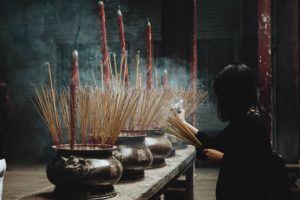
Photo by Chinh Le Duc on Unsplash
That idea started me thinking about offerings, what it means to make one, to whom we make them, and why. Spiritual and sacred practices are a strong theme in my Webbd Wheel series. Mother’s Day has come and gone and Father’s Day is ahead. Many of us mark these days with offerings of some kind. For Earth Day, I joined a small neighborhood group and picked up trash, and I framed that activity as an offering. Yesterday I cleaned up my summer-only dance space and danced there for the first time this season. As so often happens, during that hour of dance this week’s post crystallized.
An offering is “a thing offered as a gift or a contribution” according to a quick Internet search. A gift is “a thing given willingly to someone without payment.”
The act of making an offering is ancient, a practice we began long before we could go out and buy a gift. Various cultures have historically engaged in ritual sacrifice (an act of slaughtering an animal or person or surrendering a possession as an offering to God or to a divine or supernatural figure), an altogether different degree of gift from a cute coffee mug.
I’ve long struggled personally with gift giving. There’s something in me that resents and resists the cultural mandates we’ve created to give gifts of a particular kind on certain occasions or days of the year. It seems to me modern-day gift giving has moved away from making an offering and into a demonstration of possessing money and spending it on some new piece of something, just for the look of the thing. We may feel real love, or gratitude, or whatever, but the only way we know how to express it is by buying a card (never mind the trees) and some kind of a gift.
I know that’s how we do things, but what does it accomplish, aside from contributing to our capitalist economy? Is that what we most want from the people in our lives — more stuff — or is that what we take because we can’t get what we really want? Is a coffee mug all we think we have to offer? Is a coffee mug all we think the other will accept? Are we unable to recognize and cherish an offering unless it comes gift-wrapped?
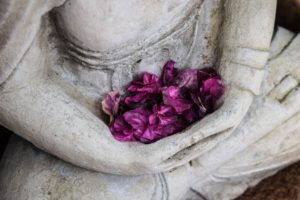
Photo by Chris Ensey on Unsplash
I’m thinking a lot about Pele, the Hawaiian volcano goddess, because I’m writing about her in my second book. Traditional offerings to Pele included tobacco, brandy, silk, crystals, tropical flowers and food. Offerings to Pele and other divine figures around the world involved ritual, prayer, music, song, dance and sometimes a sacrifice. Things, yes, although many were consumables or objects from the natural world, but also time. Presence. Creative, sensual and/or erotic expression. Community celebration, guided by spiritual leaders. Reverence. Appreciation. Gratitude. Acknowledgement of the Divine’s connection to the people and the natural world they inhabited.
Making an offering on this level is a demonstration of commitment and willingness to participate in the complex web of connection between people and nature. It’s a practice, not a one-time event. It’s flexible and not limited to the calendar or the clock. If there’s a community or individual need to speak to the Divine, time is set aside to do so. No money or commerce need be involved, because the offering is of self.
The offering of self, however, is often invisible, especially to our nearest and dearest. It’s so fatally easy to take one another for granted. The very act of feeding those we love is an offering we’ve been making and accepting since humans began. The acts of growing, harvesting, gathering, hunting, sharing and preparing food, absolutely necessary for survival, are almost obscured now by money and time constraints, ecological concerns, health issues, ideology and who does the dishes. Whether we recognize it or not, feeding another person is an offering of life. Parents know making that single offering to just one child, let alone other family members, is a colossal, exhausting, unending task. Yet it’s so often completely invisible, and who has time to enjoy the act of offering food to another (or ourselves, for that matter), or incorporate ritual, play or creativity into our eating? It’s just another chore in our busy days.
So, if our offering is invisible, unrecognized, unappreciated or even rejected in favor of something like a coffee mug, does it mean we’re worth nothing, we are nothing?
Of course not, but it feels that way sometimes, doesn’t it?
Making an offering means letting it go into the world and having faith in its worth. An offering is a gift, and a gift is a thing given willingly, without payment, remember? There isn’t a scorecard. It’s the practice of offering that enriches our spirit, not the outcome. Unfortunately, everything about our modern culture trains us to depend on immediate reinforcement. We’re hooked on likes, claps and our stats. We gloat over the number of our friends, subscribers, comments and shares. Deadliest of all, we compare our popularity and performance with the popularity and performance of others.
What others think about us and how the world perceives us is becoming more important than our own integrity and the authenticity and quality of our offerings. We’re forgetting how to trust and have faith in silence, in invisibility and in not knowing. We’re forgetting our worth is not defined by others.
What about the offerings we make to ourselves? What about our ability to meet our own needs, spiritual, physical, creative and emotional? Do we have any self to give ourselves? Do we tell ourselves there’s no time, no money and no point? Do we tell ourselves whatever our self-expression is, it’s not worth anything, meaning we can’t sell it to someone or no one will approve of it?
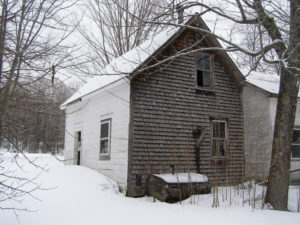
Woodshed
I danced yesterday in an old woodshed that was attached to a local one-room schoolhouse more than 100 years ago. It leans and tilts. The roof leaks. The windows and doors aren’t square and the wind blows through gaps. I swept out the winter’s accumulation of mouse and bat droppings, leaves and dirt. It was a warm, sunny day and as I danced I gradually peeled off my clothes until I was naked. The sun came in the west window and made a square on the floor.
I thought of trees and stones offering their bodies to moss and lichen, the earth offering itself to plants, and blossoms offering themselves to sunlight and insects.
I thought of smiling into a stranger’s eyes and complimenting a cashier on the color of her blouse.
I thought of the creators of the music I was dancing to making an offering of their talent, enabling me to offer my dance.
I thought of homes, rooms and gardens I’ve created that are long erased. I thought of people I’ve loved with my whole heart and volunteer work I’ve done. I thought of my partner, who was running an errand in town so I could eat bacon the next morning. I thought of picking up trash on Earth Day and the new trash that’s been thrown out car windows since then, and how futile that makes me feel.
I thought about words, all these words, all these stories and ideas and thoughts in my head that are here and in my books. I thought about all the words written by others I read each day and appreciate and share.
I thought about procreation, the red tide and the milky seed our bodies offer to life, to hope, to continuance. I thought about offerings of tears, of blood, of pain, of rage and of surrender.

Photo by Leon Liu on Unsplash
Offering is a circle. Life offers itself to us, and we can choose to offer ourselves to Life. What better offering can we make than our fully engaged participation and presence with ourselves, our experience and others? Such a gift can’t be bought or sold. It might not feed our fame, popularity or bank account. We probably won’t get validated by statistics or Twitter. Some people may never recognize or value it.
But our self-esteem will bloom. Our joy will increase. Our words and choices will add to the positive energy in the world. We will become self-empowered and spiritually strong and resilient.
I smiled and laughed and shouted as I danced, whirled and stamped and clapped. I offered up my white, winter-tender skin to the sun and air. A mosquito bit me on a knee; a blood offering. No one saw me, except maybe an astonished spider or two. No one cared. It was an offering of self to self, a private thing. It gave me joy. It gave my body a chance to move and be grateful. It fed my creative well.
It was nothing.
It was everything.
It was my offering.
All content on this site ©2018
Jennifer Rose
except where otherwise noted
by Jenny Rose | Jan 11, 2018 | Connection & Community, Emotional Intelligence
In life coaching, I was introduced to the idea that human beings have three primary needs: Connection, contribution and authenticity. I have yet to discover a need that doesn’t fall into one of these categories, so at this point it’s still a frame that works for me.
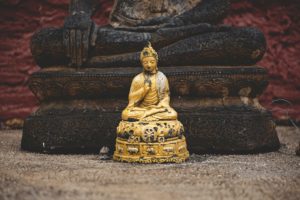
Photo by Peter Hershey on Unsplash
For me, any discussion of connection must include spiritual connection, and to talk about that clearly I need to define terms.
Spirit: The nonphysical part of a person that is the seat of emotions and character; the soul.
Religion: The belief in and worship of a superhuman controlling power, especially a personal God or gods.
Faith: Strong belief in God or in the doctrines of a religion, based on spiritual apprehension rather than proof.
Ideology: The ideas and manner of thinking characteristic of a group, social class, or individual.
Sacred: Connected with God (or the gods) or dedicated to a religious purpose and so deserving veneration.
(All definitions from Bing search.)
Spirituality: Spirituality may refer to almost any kind of meaningful activity, especially a “search for the sacred.” It may also refer to personal growth, blissful experience, or an encounter with one’s own “inner dimension.” (Wikipedia)
The archeological record tells us we have sought to understand ourselves as part of a greater whole from the infancy of mankind. Long before written records were made, there was cave art, pottery and carving thought to represent sacred beings, including, in many cases, animals. When we began to write, myth, story and legend wove a rich tapestry of religion and other spiritual frameworks all over the world.
Our powerful need for spiritual connection has historically been a significant motivator geopolitically, economically and creatively. Our search for understanding who we are and what our place in life is, individually, culturally, politically and socially, firmly anchored in our conception of spirit.
How do we create a spiritual connection? How do we choose from such a bewildering array of beliefs and ideologies? How do we cope with tribal shaming if we don’t accept the spiritual beliefs of our family or tribe? How do we think about the “nonphysical part” of ourselves, and what, if anything, does that part of us need?
It’s taken me more than 50 years to even begin to answer these questions. The two biggest obstacles I had to overcome were disconnection from my own feelings, and denying having any needs. Disconnection and denial are both disempowering, and healthy spiritual practice, at its heart, is a practice of self-empowerment.
Some people approach formal, organized religion as a way to share power. Others are quick to use it to assure power over others, and at that point it no longer fits my definition of a healthy spiritual practice. Discovering and nurturing the shape of our own spirit is an act of dignity, privacy and self-respect. It has nothing to do with what anyone else thinks or believes. We decide where we stand on the continuum between science and faith, and we define what is sacred in our lives. We have the power, and we have the responsibility. No mystic, guru, psychic, yogi, mentor, sponsor or other spiritual or religious leader or authority knows what we need better than we do. We owe nobody an explanation, justification or apology for our spiritual practice, as long as that practice doesn’t seek to harm or control others.
That’s not to say the guidance, teachings and wisdom of scholars, practitioners, philosophers, masters and thinkers are without value or interest. Yoga, martial arts, meditation, mandalas, drumming, dance, sacred traditional music and countless other rituals and traditions may be part of a spiritual practice, but none of these are essential. The real strength of spiritual practice doesn’t lie in appearance, embellishments, publicity or visibility and has nothing to do with economic or social condition.
A spiritual practice is an activity in which we are wholly present with ourselves in a nonjudgmental fashion and after which we feel empowered, anchored, refreshed and renewed. A healthy spiritual practice is a haven, a refuge, a place of solace and joy. It connects us to ourselves, to others, and to something larger than we are. It doesn’t matter if we name that something God, Allah, Spirit, Divine, Goddess or even Gaia, it all boils down to the basic human need for some kind of spiritual connection.
A few weeks ago I wrote about living a seamless life. My spiritual practices are frequently invisibly embedded throughout my every day life, requiring nothing more than my presence and intention.
Here’s an example: After a long day the kitchen is full of dirty dishes. I slather my hands with the most luxurious lotion/cream in the house and don rubber gloves. I turn off lights, tech and the TV. I light a couple of candles. I might play some music, or just soak up silence. I look out the window over the sink. I breathe. I relax. I’m present. I’m consciously grateful for a kitchen, dishes, a sink, running hot water, the ability to stand and use my hands, and food that creates dirty dishes. I take time to feel what I feel, check in with myself, daydream and drift.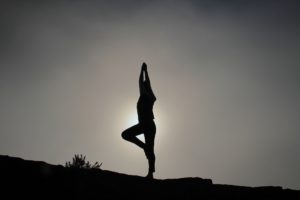
I approach exercise as a spiritual practice. I’m not worried about my weight or health, but I do notice I feel better, sleep better and function better if I stay active, so my daily goal is to show up at some point with myself to move. Sometimes I dance. Once a week I swim, then soak in a therapy pool, then take a long hot shower. I walk, both by myself and with my partner. This winter I’m going to begin snowshoeing. I do Tai Chi. With the exception of walking with my partner, all of these activities are opportunities to have time with myself, quiet, undistracted time in which to be in my body, remember what a beautiful world I live in, practice gratitude, allow feelings, pray, chant, sing, work creatively, stretch and breathe. When I’m finished I feel relaxed, empowered, centered and grounded.

Photo by Miranda Wipperfurth on Unsplash
A spiritual practice may be as simple as a special tree, rock, crystal, cushion and/or candle. It might be a secret altar or shrine, a string of beads or a stick of incense. It can take place anytime, anywhere, solo or in a group. It can be a five-minute pause or a long weekend of ritual at a hot spring, but it always makes us bigger. Anything that diminishes, restricts, confines, limits, shames, invalidates or disempowers us is not a healthy spiritual practice, no matter what anyone says. It’s merely an ideology of control.
Many of us naturally find our way into spiritual practice without realizing what we’re doing, impelled by this often unconscious but powerful human need. Recognizing the need for spiritual connection, giving it language, honoring and allowing it, allows us to take back our power to define and protect sacred space in our lives, free from distraction, interruption, multitasking, pressure, hurry and the constant noisy static of media and entertainment. If our spiritual life is tainted by criticism and judgement, our own or others’, it won’t sustain us and our spirit will sicken and starve. We’ll begin to look outside ourselves for spiritual nourishment and become vulnerable to addiction, perfectionism, pleasing others and people who steal power.
The care and feeding of the spirit is the least talked about aspect of the need for connection, but it may be the most important. In the absence of spiritual connection, all our other connections suffer. True spiritual power transcends physical strength, youth and beauty, and it cannot be coerced or stolen. Our greatest strength may lie in our ability to create spiritual connection for ourselves and support others in theirs.
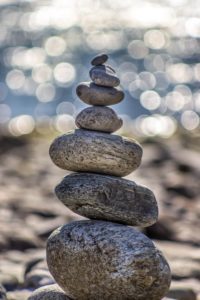
Photo by Deniz Altindas on Unsplash
All content on this site ©2018
Jennifer Rose
except where otherwise noted



















